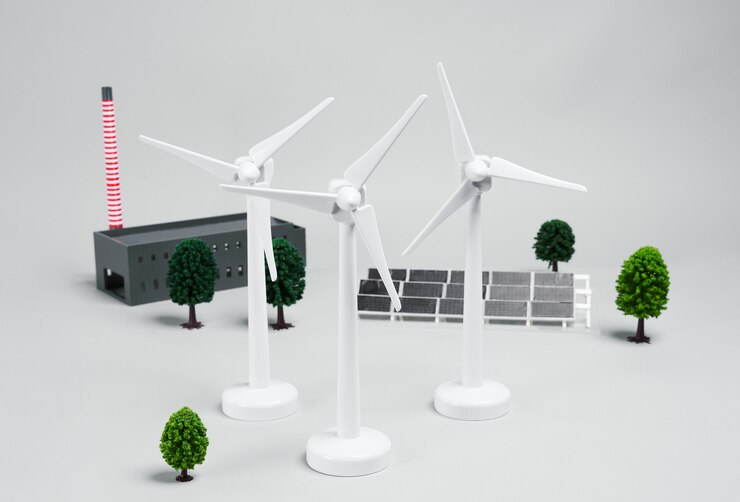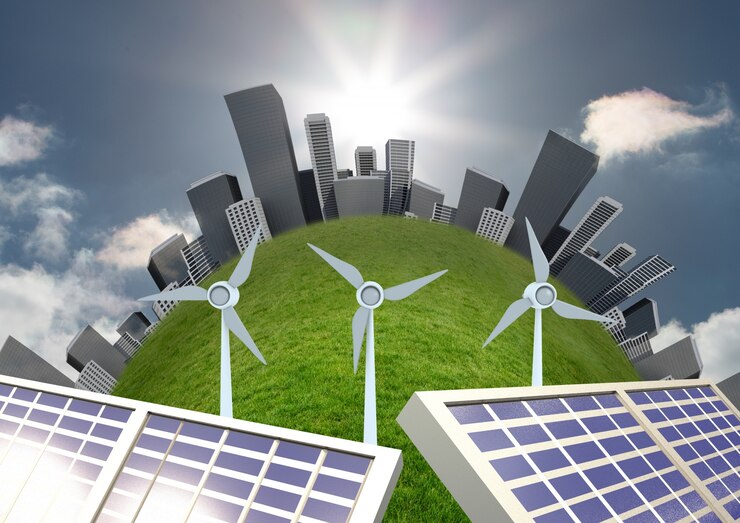EcoTech
Have you ever stopped to think about how technology is playing a crucial role in building a more sustainable future? As we face increasingly urgent environmental challenges, technological innovation stands out as an essential tool to confront these issues head-on. In this article, we will explore the exciting world of EcoTech and discover how it is shaping the future of our planet.
What is EcoTech, and Why is it So Important?
EcoTech, or sustainable technology, refers to a set of technological solutions developed with the aim of minimizing environmental impact and promoting more ecological practices. These innovations seek to balance economic development with environmental preservation, creating a scenario where technology is not just part of the problem but also a crucial part of the solution.
With the growing global concerns about climate change, pollution, and depletion of natural resources, EcoTech emerges as a proactive response to these challenges. Its role goes beyond simply correcting damages; it aims to transform the way we live and interact with the environment.
Renewable Energies: The Heart of the EcoTech Revolution
When we talk about sustainable technology, renewable energies emerge as the focal point of the revolution. The transition from non-renewable energy sources to clean alternatives like solar and wind represents a significant step towards a greener future. We are witnessing the rise of efficient solar panels, innovative wind turbines, and energy storage systems that are changing how we produce and consume electricity.
Besides being cleaner, renewable energies also offer the advantage of being inexhaustible, reducing our dependence on non-renewable resources and mitigating the negative impacts associated with their extraction and combustion.

Smart Cities: Where EcoTech Meets Urban Life
Cities, as epicenters of human activity, play a crucial role in the pursuit of a sustainable future. The rise of smart cities is a tangible manifestation of EcoTech in the urban environment. Connected sensors, efficient infrastructure, and intelligent use of data are transforming the way cities function.
With the implementation of technologies like smart public lighting, automated waste management systems, and efficient public transportation, smart cities not only improve the quality of life for inhabitants but also reduce the environmental impact associated with conventional urban operations.
The Electric Vehicle Revolution: Towards Sustainable Mobility
One of the most exciting areas of EcoTech is the revolution of electric vehicles (EVs). The transition from fossil fuel-powered vehicles to electric ones not only reduces pollutant emissions but also redefines how we think about mobility.
With ongoing advances in high-capacity batteries, fast-charging networks, and affordable electric vehicles, we are witnessing a significant shift in the automotive industry. The mass adoption of EVs will not only reduce the carbon footprint of the sector but also pave the way for more efficient and sustainable mobility.
The Challenges and Opportunities of EcoTech
Despite remarkable advancements, EcoTech still faces considerable challenges. The initial cost of many sustainable technologies, for example, can be a significant barrier to widespread adoption. Additionally, existing infrastructure often does not align with the demands of eco-friendly solutions, requiring substantial investments.
However, these challenges also present opportunities. As the demand for sustainable technologies increases, investments in this sector grow, driving innovation and reducing costs over time. Collaborative solutions between governments, businesses, and communities can further accelerate the effective implementation of EcoTech across different sectors of society.
The Role of Sustainable Agriculture in EcoTech
While we often associate EcoTech with energy and urban solutions, it’s crucial to explore its impact on agriculture. Sustainable agriculture practices, supported by technological innovations, are instrumental in addressing food security and minimizing the environmental impact of farming.
Precision farming, for instance, utilizes advanced technologies such as sensors, GPS, and data analytics to optimize crop yields and reduce resource usage. This not only improves efficiency but also minimizes the ecological footprint of agriculture. Innovations like vertical farming and hydroponics further demonstrate how technology can revolutionize traditional farming methods, making them more sustainable and resilient.
Challenges and Innovations in Waste Management
A significant aspect of environmental sustainability revolves around waste management. Traditional waste disposal methods contribute to pollution and resource depletion. In the realm of EcoTech, innovative solutions are emerging to tackle these issues.
Advanced recycling technologies, waste-to-energy conversion, and the utilization of biodegradable materials are transforming how we handle waste. Smart waste management systems equipped with sensors and data analytics enable more efficient collection and recycling processes, reducing the burden on landfills and promoting a circular economy.
The Importance of Consumer Awareness and Education
As we navigate the intricate landscape of EcoTech, it becomes evident that consumer awareness and education play pivotal roles in its success. The choices individuals make regarding energy consumption, transportation, and daily habits collectively contribute to the impact of sustainable technologies.
Educational initiatives aimed at promoting eco-friendly practices and raising awareness about the benefits of EcoTech are essential. Governments, businesses, and non-profit organizations must collaborate to disseminate information, fostering a sense of responsibility and encouraging sustainable behavior among consumers.

International Collaboration for a Sustainable Future
The global nature of environmental challenges requires international collaboration to achieve meaningful results. EcoTech solutions need to transcend borders, with nations coming together to share knowledge, resources, and best practices. Initiatives such as joint research projects, technology transfer agreements, and collaborative policy frameworks can pave the way for a unified effort towards a sustainable future.
Incentivizing Eco-Friendly Practices: The Role of Policies and Business Initiatives
Governments and businesses have a crucial role in driving the adoption of EcoTech. Policy frameworks that incentivize sustainable practices, such as tax credits for renewable energy investments and emissions reduction targets, can motivate industries to embrace eco-friendly technologies.
Businesses, on the other hand, can play a significant role by integrating sustainability into their core strategies. From supply chain management to product development, incorporating eco-friendly practices not only benefits the environment but also enhances brand reputation and attracts environmentally conscious consumers.
Looking Ahead: The Continuous Evolution of EcoTech
As we envision a future shaped by EcoTech, it’s essential to recognize that this journey is dynamic and ever-evolving. Continued research and development will bring forth new innovations, making sustainable technologies more accessible and efficient.
Public support and advocacy are crucial elements in driving the momentum of EcoTech. Individuals, communities, and organizations must actively engage in discussions, pushing for policies that prioritize sustainability and holding businesses accountable for their environmental impact.
Embracing EcoTech for a Better Tomorrow
In conclusion, EcoTech stands as a beacon of hope in our pursuit of a sustainable future. From renewable energies and smart cities to electric vehicles and sustainable agriculture, technological innovations are reshaping the way we interact with the environment.
While challenges exist, they are opportunities in disguise, propelling us to find innovative solutions and create a more resilient and sustainable world. By fostering global collaboration, incentivizing eco-friendly practices, and prioritizing education, we can accelerate the adoption of EcoTech and ensure a better tomorrow for generations to come.
The time to embrace EcoTech is now – let’s seize the opportunity to create a future where technology and sustainability coexist harmoniously, paving the way for a planet that thrives for centuries to come.
Did you like this topic? See more content about: Sustainability
SOURCE: eco tech daily





